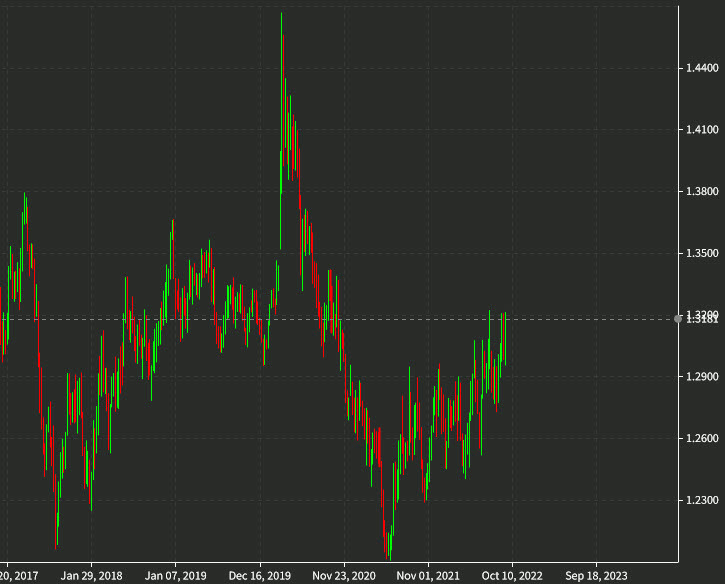
Oil and gas are soft today in what looks like a giveback from yesterday as a potential rail strike was avoided.
In the bigger picture, the loonie is struggling against overwhelming and broad US dollar strength. Canadian housing data today showed a 1% price decline but there are signs of stabilization. Those could unravel quickly though if the Bank of Canada continues to hike.
In trading USD/CAD at the moment, it's critical to appreciate the differences in the mortage markets. In the US, the 30-year fixed is king. That means that rate hikes have no direct impact on people who already own their homes, which is 95% of people. There's a drag for things like home-equity loans but overall the impact is much smaller.
In Canada, the mortgage market is a combination of variable rates that adjust monthly and 5-year fixed resets. The variable rate holders -- which increased during the boom -- suffer immediately while one-fifth of five-year resets feel the brunt of rate changes each year.
What it means is that Canadian households and consumers will feel a more-immediate squeeze from higher rates. There will also be a rolling effect with rates staying high. Combined, it means BOC hikes hit harder and faster than in the US.
Moreover, the Canadian economy has been far too reliant on housing for many years.
Together that means the Bank of Canada likely can't hike rates above 4% and even hiking above 3.5% could be a policy mistake. If inflation lingers, the Fed will eventually decouple from the BOC. Speculation that's coming (on a more-aggressive Fed) is a catalyst for a sustained break above 1.3200.
Zooming out, there is some resistance near 1.3400 but I think the eventual top will fall in the 1.3700 range. Eventually, the loonie will be a strong currency as the cycle shifts and commodites rally on better global growth (and underinvestment in the space) but that's a few steps away.
